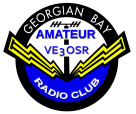2021-04-09, 12:37:10
(2020-10-15, 17:51:34)VA3TS Tom Wrote: There are lots of things I would be rusty at like traffic handling, but I think I could scare up a station with antennas and feedline fairly quickly. I can see a little problem with the leaving home for a few days. It's not so much the being away from home, it's who is left at home. The security of the family is important also but maybe it's just a matter of organization and scheduling. my 2 centsI totally agree Tom, who's left at home is a key question. This is why, in my humble opinion, emergency radio operations should also include all aspects which support the operators(s) during a true emergency of any length. Those who really want to be on the air should be prepared body and soul to do so. The gear is important but it's nothing without the operator.
Consider also that, while operating in an EOC will be important for the function of an emergency radio network. However critical information from field stations or established shacks will also be essential. A single operator deployed to a municipal office, hospital, police or fire station will be isolated and unsupported aside from those measure they take to feed themselves and sleep. In a long duration emergency they could be exhausted and pretty ineffective if they can't stay at their location for an extended period.
I believe that the key to a functional emergency communications network work is preparing and pre-planning for worst case scenarios. We need to think out field operations carefully with a view to having a coordinated means of maintaining comms over Bruce and Gray county via various modes. I have made the argument before, and continue to do so again that our repeaters need to be upgraded with solar panels and chargers. VHF repeaters can do the heavy lifting when it comes to coordinating basic EmComm operations. Stations willing to operate packet stations using D-RATS or similar software can send and receive files via simplex and so no repeaters are required. However careful planning of stations in such a 2 meter net will be required owing to line of sight issues etc.
NVIS operations are more complex, especially for field stations. NVIS is also subject to propagationa and so might . VHF and packet are not complex, less prone to propagation and can be setup with simple antennas. The key is to have enough stations on the air to create an effective network over the serviced areas.
Our home QTH may be the best option of setting up and operating a reliable 2 meter EmComm net. In a home QTH we can stockpile food and water which would make it easier to stay on the air longer. We can more easily rest between shifts, and stay more comfortable than possible. Jan and are are obviously good candidates for this kind of operating because we could, over a prolonged emergency, spell each other and so maintain an active net.
We are also able to operate totally off-grid using solar and in winter we have wood stoves and enough firewood to stay warm. We can do both HF, VHF and UHF and digital modes. While I'd be willing to sleep on a cot and take a few shifts at an EOC I'd be happier sleeping in my own bed, eating my own food and maintaining my own lifestyle as best I can.
That rather long winded response is my 2 cents.


